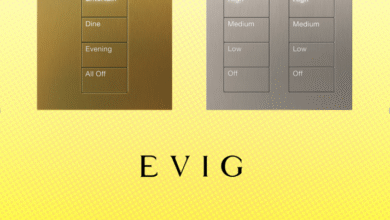Mutf_In: Kota_Emer_Equi_6og8kj represents a significant shift in urban development, merging sustainability with community-driven design. Its focus on eco-friendly materials and technological integration presents a model for future cities. By involving residents in decision-making, this initiative reshapes urban landscapes to better reflect collective needs. However, the broader implications of such an approach on societal dynamics and environmental resilience remain to be explored. What challenges and opportunities lie ahead for this innovative framework?
Overview of Mutf_In: Kota_Emer_Equi_6og8kj
Mutf_In: Kota_Emer_Equi_6og8kj represents a significant advancement in the realm of data integration and analysis.
This platform enhances urban design by facilitating collaboration among stakeholders, promoting sustainable architecture practices.
By leveraging comprehensive datasets, it empowers decision-makers to create environments that prioritize ecological balance and community well-being.
Ultimately, Mutf_In champions innovative solutions that align with the aspirations of a freedom-seeking society.
Key Features and Innovations
The innovative framework of Kota_Emer_Equi_6og8kj introduces several key features that significantly enhance urban planning and data analysis.
These features include:
- Sustainable Design: Prioritizing eco-friendly materials and practices.
- Technological Integration: Seamlessly merging advanced technologies with urban environments.
- Data-Driven Insights: Utilizing real-time data for informed decision-making.
Collectively, these innovations empower urban planners to create adaptable, resilient cities that align with the principles of freedom and sustainability.
Community Impact and Engagement
While urban planning often emphasizes infrastructure and technology, the true measure of success lies in the engagement and impact on community members.
Effective community outreach fosters social integration, empowering residents to actively participate in decisions that affect their lives.
Future Implications for Urban Development
As urban development continues to evolve in response to changing societal needs and environmental challenges, the implications for future cityscapes are profound.
Key considerations include:
- Smart cities that leverage technology for efficient resource management.
- Sustainable infrastructure designed to minimize environmental impact.
- Enhanced community engagement to ensure developments reflect the desires of citizens.
These factors will shape resilient, adaptive urban environments for future generations.
Conclusion
In the ever-evolving landscape of urban development, Mutf_In: Kota_Emer_Equi_6og8kj emerges as a beacon of hope, much like a lighthouse guiding ships through turbulent waters. Its innovative approach to sustainable architecture and community engagement signifies a departure from traditional models, encouraging cities to flourish as resilient ecosystems. As this initiative plants the seeds of collaboration and eco-friendliness, it cultivates a future where urban spaces resonate with the heartbeat of their inhabitants, nurturing harmony between humanity and nature.




